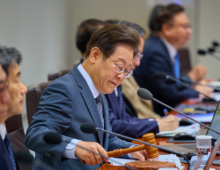Allegations of espionage by Indonesian engineers put a spotlight on security and trust in defense collaborations
South Korea’s defense procurement agency, Defense Acquisition Program Administration (DAPA), announced last week that an unknown number of Indonesian engineers are under investigation for allegedly attempting to steal technologies related to the KF-21 fighter jet. This incident raises critical concerns about the security of South Korea’s military technologies, as well as the stability of its diplomatic relations with Indonesia, a key defense and trade partner.
The KF-21 Boramae project is central to South Korea’s strategy to upgrade its air force capabilities, aiming to replace its aging F-4 and F-5 jets with advanced, domestically-produced 4.5-generation fighters.
South Korea’s defense procurement agency, Defense Acquisition Program Administration (DAPA), announced last week that an unknown number of Indonesian engineers are under investigation for allegedly attempting to steal technologies related to the KF-21 fighter jet. This incident raises critical concerns about the security of South Korea’s military technologies, as well as the stability of its diplomatic relations with Indonesia, a key defense and trade partner.
The KF-21 Boramae project is central to South Korea’s strategy to upgrade its air force capabilities, aiming to replace its aging F-4 and F-5 jets with advanced, domestically-produced 4.5-generation fighters.
Get your
KoreaPro
subscription today!
Unlock article access by becoming a KOREA PRO member today!
Unlock your access
to all our features.
Standard Annual plan includes:
-
Receive full archive access, full suite of newsletter products
-
Month in Review via email and the KOREA PRO website
-
Exclusive invites and priority access to member events
-
One year of access to NK News and NK News podcast
There are three plans available:
Lite, Standard and
Premium.
Explore which would be
the best one for you.
Explore membership options
© Korea Risk Group. All rights reserved.
No part of this content may be reproduced, distributed, or used for
commercial purposes without prior written permission from Korea Risk
Group.












